kremlin
Latest
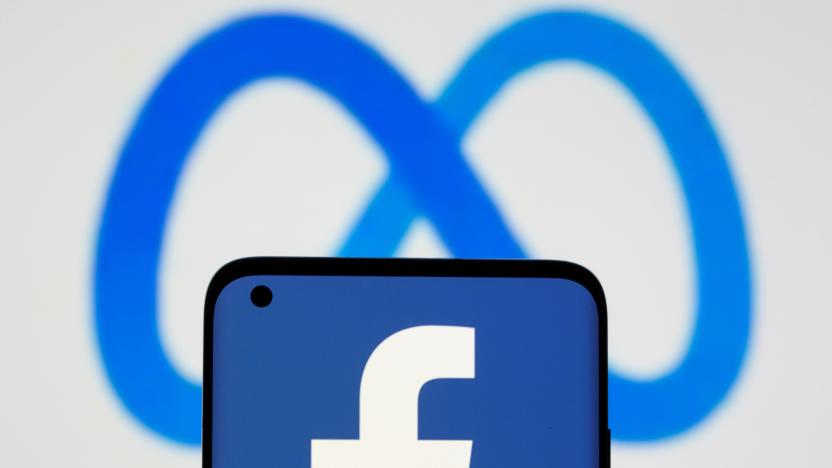
Russia partially restricts access to Facebook over censorship claims
Meta reportedly limited official accounts of Kremlin-backed media outlets.
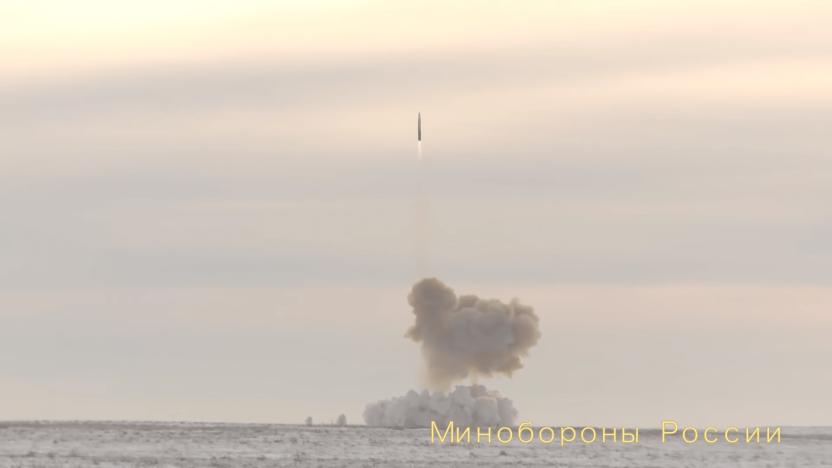
Russia's hypersonic weapon is reportedly running short on carbon fiber
Russia's plans to build a hypersonic weapon system that can travel at more than 20 times the speed of sound, and also evade US missile defenses, has predictably rattled the world. Last year, Russian President Vladimir Putin boasted that the Avangard weapons system would be ready by 2019. But some obstacles lie ahead that could impact production, CNBC reported. Specifically, the Kremlin needs to find another source of carbon fiber material to build the Avanguard hypersonic glide vehicles.

Putin signs Russian internet isolation bill into law
Russian President Vladimir Putin signed a bill into law on Wednesday that will tighten government control over the internet. The new law requires that internet service providers in Russia unplug from foreign servers. It also calls for the creation of a national domain system that would allow the country to stay online if it was ever cut off from the global internet. The law will go into effect on November 1st, the Financial Times reports.

Cyber Command put the kibosh on Russian trolls during the midterms
The US military has reportedly retaliated against Russian attempts to interfere in elections. Cyber Command took the notorious Internet Research Agency offline on 2018 midterm election day in November, officials told the Washington Post.

Russia denies planning botnet cyberattack on Ukraine
Russia has denied planning a major cyberattack that would disrupt soccer's Champions League final this weekend. Ukraine's SBU security service said on Wednesday that malware infecting hundreds of thousands of routers was the work of Russian hackers preparing for an assault on the country. The attackers were accused of targeting Saturday's match in Kiev. According to Reuters, the Kremlin has strongly denied these accusations.
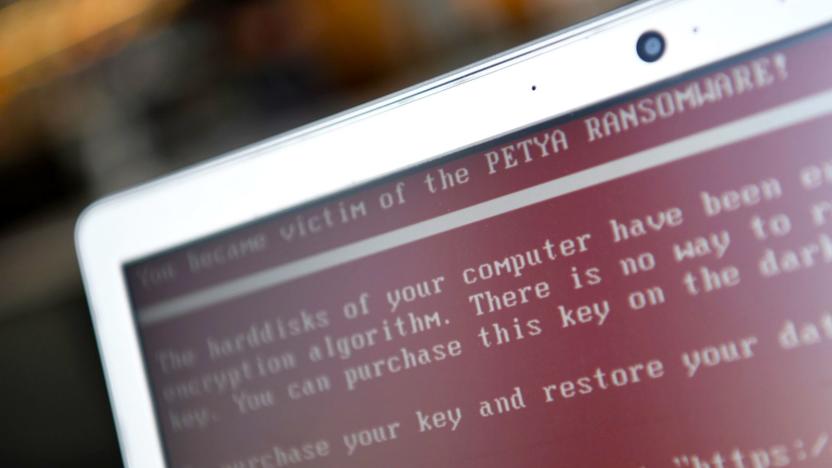
Russia denies UK claim it was behind NotPetya cyberattack
The UK government says that Russia is to blame for the destructive NotPetya cyberattack that scrambled major infrastructure around the world in June 2017, costing firms millions. Foreign Office minister Lord Ahmad said that while the attack masqueraded as a criminal enterprise, its purpose was "principally to disrupt" Russia's primary target, Ukraine, and that Russian military was "almost certainly" behind the attack.

Facebook, Twitter and social media’s road to federal regulation
The extent of Russia's meddling in the 2016 US presidential election remains unclear, but it's no secret that social media played a major role. This year brought with it a great deal of scrutiny for tech giants, particularly Facebook, Twitter and Google. These three companies came under the US government's microscope after news that Kremlin bots and trolls, spearheaded by a group known as the Internet Research Agency, used their sites to tamper with the 2016 presidential election. They spread misinformation (fake news!) and dubious ads across Facebook, Twitter and Google to hundreds of millions of users in the US, with the aim of fomenting hostility among Americans. And it's safe to say they succeeded.
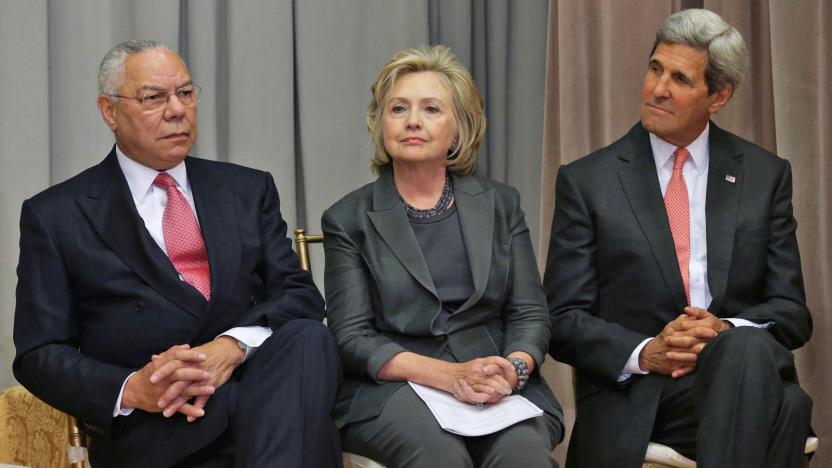
Russian hackers had hundreds of US targets in addition to the DNC
Various US agencies continue to look into the role Russia played in last year's presidential election, and targets of those investigations include interactions between Trump advisors and Russian officials, ads purchased by Russian agents through social media sites like Facebook and Twitter and whether the Kremlin was involved in the DNC email hacks of last year. In regards to the latter, Russia has been suspected of being behind the hacks for quite some time and just this week, reports have surfaced that the US Department of Justice has pinpointed six Russian officials it believes to have been involved in the hacks. However, a report released today by the Associated Press suggests that the group behind the DNC email breaches actually had a much wider range of targets.

Germany confronts Russia over election hacking
Speaking with reporters at a conference in Potsdam, Hans-Georg Maassen, president of the BfV agency (Germany's domestic intelligence group) renewed claims that Russian hackers were behind the attack on his country's parliament. He also warned the other nation against attempting to weaponize the "large amounts of data" stolen in that breach in the upcoming national elections come September.
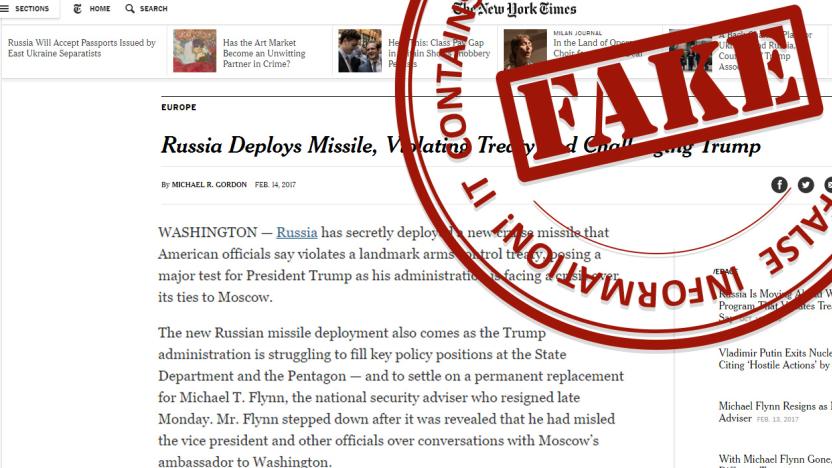
The Russian government has its own 'fake news' watchdog site
In Russia's heavily state-controlled media landscape, the government wants to make it clear when Western news outlets publish work it disagrees with. As Newsweek reports today, the Russian Ministry of Foreign Affairs has launched a "fake news" tracking page, which emblazons a comically large, red "FAKE" stamp on articles it deems untrue.
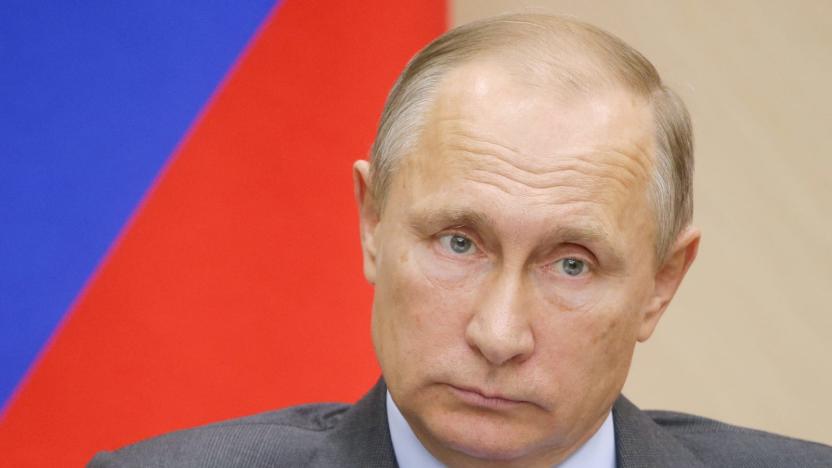
Russia is ditching Microsoft because it's an easy target
We know that Russia wants to give Microsoft products the boot, but now it's clearer as to why. A senior US intelligence official talking to NBC News not only supports talk of Russia endorsing a plan to purge Microsoft software from the government (starting with Moscow), but explains why. Reportedly, Vladimir Putin and crew are picking on Microsoft because it's an easy target for anti-American sentiment. It's a huge company that rules the tech sector, and it's not hard to persuade Russians that the firm is collaborating with US spies despite evidence to the contrary.
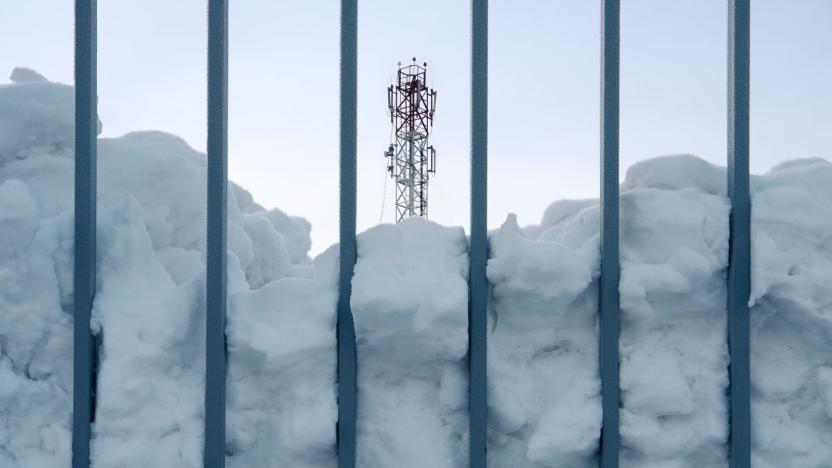
Russia hopes to block cruise missile attacks with cell towers
While the United States may have put its blimp-based missile defense system on hold, Russia is taking a more civilian approach to jamming cruise missiles. As Motherboard reports today, the Russian military is planning to mount anti-missile jamming devices called Pole–21s on civilian cellular network towers, giving the Kremlin a wide coverage area in the case of a US missile attack.

Tech giants do battle with Russia over censorship
Next week supporters of Alexei Navalny, a lawyer and anti-corruption crusader currently under house arrest in Russia, are planning a rally that the Kremlin would really rather not happen. So, to that end, the government has begun issuing block orders to the likes of Twitter, Facebook and Google to keep information about the rally offline. But, the companies don't appear to be inclined to comply... at least, not any more. When the rally was first announced last week, a prosecutor from Russia's communication's regulator issued the block orders. Facebook honored the first request, but when more pages promoting the rally cropped up and criticism was leveled at the social network, it decided to get its lawyers involved and has left the new pages up. Twitter and YouTube have received similar requests, but the sites appear content to let videos and tweets promoting the rally live on.

Russia orders bloggers to register with government in attempt to control the internet
Russia: the home shirtless autocrats, vodka and a love of free speech rivaled by only China. The Kremlin is taking another step to squash people speaking their mind online. After building out an infrastructure that allows the government to more easily block sites it finds objectionable, now it's building a registry of bloggers. A newly approved law requires anyone who authors a blog in the country to "declare their family name and initials and e-mail address." To make matters worse, if someone's personal blog has more than 3,000 visitors per-day, they'll have to put their names on a special list and abide by a particularly onerous set of restrictions -- the same set of restrictions that many mass media outlets must obey. If they violate those laws, they'll be subject to fines or even have their site suspended for a period of time.

iPhone 4S supports GLONASS satellite system, much to the delight of Russia
What does a Russian satellite system have to do with the iPhone 4S' GPS capabilities? Allow us to explain. Russian site iPhones.ru recently noticed that the 4S' spec page lists support for both assisted GPS and GLONASS -- the Kremlin's global navigation satellite system and acronym for GLObalnaya NAvigatsionnaya Sputnikovaya Sistema. The country launched GLONASS 35 years ago in the hopes that it would eventually provide an alternative to GPS and the EU's forthcoming Galileo, thereby reducing Russia's dependence upon US- or Europe-operated systems. The global system has since been beset by delays and budgetary setbacks, but last week, a Russian rocket successfully launched the 24th and final GLONASS satellite, completing the constellation and inching the infrastructure closer to full activation. News of the iPhone 4S' support has already elicited a delightfully surprised response from the Russian media, with daily Vedomosti writing: "If the iPhone 4S really does have Glonass navigation, this would be the first time the Russian system reached the world market." (Nokia, it's worth noting, announced in August that it would manufacture GLONASS-compliant handsets, while Samsung's High Fidelity Position app offers similar compatibility.) In light of Russia's economic and regulatory climate, however, the move may not seem so shocking. The Kremlin already imposes import taxes on handsets that don't support GLONASS and, as Russia's iGuides.ru points out, has even threatened non-compliant devices with an outright ban. Apple, meanwhile, has made no secret of its interest in expanding its influence within the country, with CEO Tim Cook recently referring to the Russian market as "more promising." It remains to be seen whether this added support results in sharper navigation capabilities, or if it enhances Apple's presence within Russia, but it's certainly a compelling development, nonetheless. [Thanks, AXR]

Russian President Medvedev pictured with MacBook Pro
The Kremlin has released photos of Russian President Dimitry Medvedev holding a meeting with his aides and what appears to be a new MacBook Pro. The president also recently addressed the nation in a video blog post, where his MacBook Pro was seen in a similar meeting. The logo had been removed from the video early on, but is visible around the 1:20 mark. Other videos on the Kremlin's website show Medvedev with a variety of computers. Medvedev has previously been photographed using an iPhone, though some speculated it was a black-market acquisition. At the time the photo was taken, the iPhone was not yet available for sale in Russia. This follows in the footsteps of other high-profile world leaders using Apple products, including former Swedish Prime Minister Carl Bildt's switch to a Mac last month. Thanks, Andrei!








